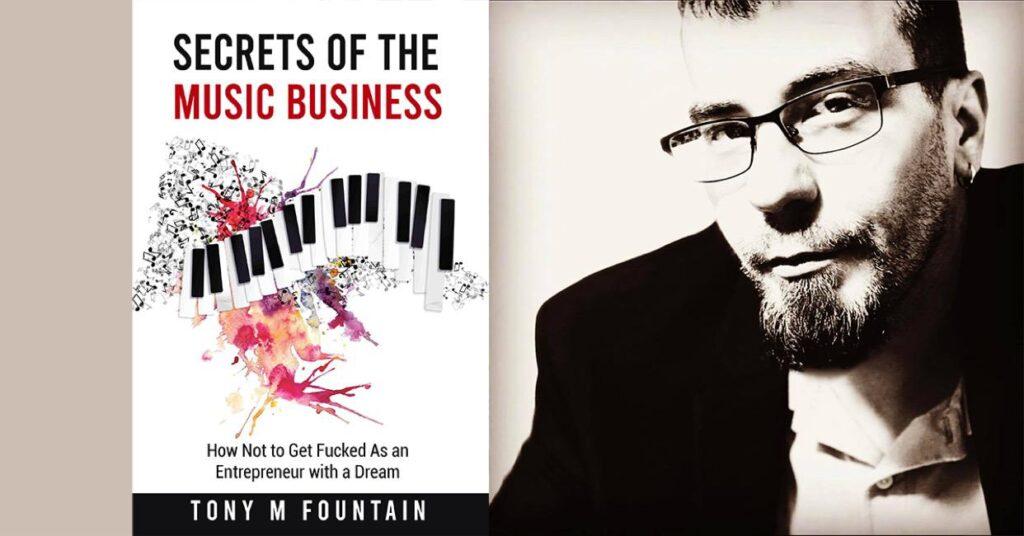Decades Later, Upcoming Artists Are Still Falling For These Scams in the Music Industry

A simple analogy of the music industry reality for emerging artists is like bitter lemonade in a lovely milk container. Essentially, it’s not what it seems from the outside.
The industry has evolved so remarkably in the past five decades with technology constantly opening up better channels of operation at the turn of every decade. With fully efficient virtual studios, high-tech streaming channels, live performances over the internet, and social media for easier promotion, it’s not surprising that independent artists now make up nearly 40 percent of the global music industry, as NPR reports. However, as the going gets easier for the passionate people, the shady bunch are also getting free passes.
Like most other industries, scammers have been thriving alongside legitimate managers in music since the days of vinyl records and cassette players. From record labels syndicates and promotional frauds to talent scouting scams and full-blown con artists, it’s upsetting how technology improved the industry and also made it more vulnerable to people looking to rip others off.
This is 2021, the peak of an era when random people can simply reach out to others in social media DMs, claiming to be the golden ticket to long-lasting success. Somehow, people are still falling relentlessly for these cons, especially the rising talents itching to carve out a niche for themselves.
The record label organized scams
The topic of record labels turning artists into money-making machines without the master rights to their art has been debated for far too long. Record labels are supposed to make the journey easier for upcoming artists by investing in them through recruitment and development, music production, promotion and distribution, management, and copyright enforcement. In return, they receive a percentage of the artist’s earnings through nearly all fund-generation channels.
The way the music industry is set up does not exactly permit artists to own the masters of their songs and albums. They cannot maximize the profit-earning opportunities without breaching their original contracts. Essentially, a record label takes you under their wing the moment you sign over the rights to your intellectual property.
In recent times, many registered record labels are openly exploiting emerging artists by playing to their FOMO senses. They preach about how no single artist has ever made it without a solid label backing and how they can bring the world to your feet. They come up with incomprehensible contracts, set up phony meetings with their own lawyers, and cajole young talents to sign away their futures for meager cuts of their earnings.
“Labels sign artists everyday without the intent to help them grow in any way,” says Tony M. Fountain, founder and CEO of Now Entertainment magazine, a music industry publication. “Some use the right of first and last refusal in their contracts to their benefits and leave it up to the artist to make themselves popular and drive demand, while the label still maintains control of future business.”

To prevent these strategic cons on a quick whim, Fountain advises, “Watch out for the contracts where they try to control too much of the process, including the parts you can decide for yourself such as where you record. A label is essentially a loan company and you have to pay them back. They may have partnerships in place that you don’t know about. Also, look for things like packaging and shipping costs especially if you’re not releasing any physical albums.”
Also, many labels do not have access to the distribution channels and publications they may promise in the beginning, eventually leaving growing talents with high hopes and virtually no results. Some may even go as far as promising song placements in movies and other theatrical productions. In the end, if you’re lucky to have a YouTuber with 5K subscribers playing your song in the background, consider yourself lucky.
Straight-up fake labels
Several artists have told horror tales of receiving professionally crafted emails that seem to come from top labels including Warner Music Group, Universal Music Group, EMI, Sony Music, and others. Even when the attached website domain is an obvious flunk such as “http://universalmusic.tk”, a few unfortunate people out of the thousands pitched might just fall prey.
It should be instantly obvious that you are about to be scammed when a supposed record label sends you a PayPal account or Bitcoin wallet to credit before getting started, but sometimes, excitement clouds better judgment.
The “glittering gold” managers
This is one of the oldest scams in the book, and of course, it still plays to the eagerness of upcoming artists with hopes of getting to the top with solid backing.
These days, these faux managers are everywhere – Twitter, Facebook, Instagram, YouTube, and even on LinkedIn. They come up with the most larger-than-life profiles, mentioning names of globally renowned artists they “managed before fame”. Others claim to have garnered millions of streams on major platforms for their artists, even supplying links as proof. They can get you collaborations with Drake and Beyoncé and get you a slot to perform at Coachella. Some would go as far as posting screenshots of fake DM conversations with Rihanna and Megan Thee Stallion.
“There are different types of managers such as artist managers, business managers, and tour managers,” says Fountain, a former record label owner. “Artist managers typically get about fifteen to twenty percent of an artist’s income, so if you’re not making any money you have no need for a manager. Once you’re already making money and have so much going on that you need help managing everything, this is when you’ll need a manager. They do not play the role of PR agents, investors, and other things so many artists assume they do. They may help to schedule your studio sessions, photoshoost, or help you find the best public relations or ads agency for your campaign, but they do not pay for any of these services with their own money.”
These scams usually play out in two major ways. In the first scenario, they may take the artist under their rather soggy wing, getting weekly checks from struggling talents for doing absolutely nothing. They secure collaborations with other lowly artists, features in spam-ridden low-ranking websites, and when your music gets published, it performs poorly on every single platform due to poor promotion. Eventually, the artist realizes it’s a waste of time and moves on. Of course, they can’t get their money back.
In the second scenario, they bill a certain amount as a down payment for any “fish” in their net, and when the funds are cleared, they vanish into thin air.
As Fountain recommends, you should only hire a manager when your schedule becomes too difficult to manage. “Once your schedule becomes too overwhelming for you to handle on your own and you begin looking for a manager, make sure to ask around about them. You read the reviews on Amazon before making a purchase and ask around town before carrying your car to a local shop. Why wouldn’t you do the same when it comes to your career?”
A & R fraud
The “Artist and Repertoire” division of any label or company is responsible for talent scouting and recruitment. The first sign of an A & R fraud setup is charging upcoming artists for auditions. They are supposed to be scouting, so why attach a fee? Most times, the label’s top management would be in the dark about this, but if they are aware of it, the entire label is most likely trash.
The fake publicist’s cookbook
Fake publicists are some of the wildest in the game. They come in many shapes and forms and it takes special guidance to not fall prey to these sharks. The music industry is extremely competitive and while talent and passion provide a lot of the necessary momentum, artists still need to promote their songs to gain relevance.
Shady PR people would show up all over the place, even on Facebook and Instagram ads, popping out 10-image carousels showing artist features on Forbes and top magazines, Spotify playlists, top podcasts, and YouTube channels, all backed up with the promise of “going global” in no time.
Most of the time, their scams are the swiftest, often lasting through the time it takes to convince you of their powers and the moment you make that first cash transfer.
“Traditional publicists can’t guarantee you anything,” Fountain explains. “They write up a compelling story on your behalf and pitch it to publications. They follow up with those publications as well. However, if your story isn’t newsworthy or interesting enough, it’s not their fault if no one covers the story.”
“A good publicist will have connections at various publications and know which to target depending on your campaign goals,” he continues. “A bad one will just get you placed anywhere to make it seem like they’ve done something for you, when in reality, they’ve just wasted your time. For example a country rap artist being placed on a site prominently about gangster rap isn’t going to help their career.”
To avoid scammers, always stay a step ahead
One word – research.
If you’ve ever doubted how information equates to power, look no further than the music industry. To know is to be armed. Young artists need to cultivate a habit of looking deep into anyone they may intend to work with, especially in the long run. If they claim to have helped any reachable acts climb the ladder, connect with these people and verify their claims. When a contract is presented to you, hire a personal lawyer to review and advise before you proceed. Never let your guard down for a second, especially when their stories and bios sound too good to be true.
There’s no shortcut to success. The best way to stay safe is to educate yourself about the industry.One excellent resource to learn the “un-sugarcoatedtruth” would be Fountain’s newly published book with the bluntest title we’ve seen in recent times, “Secrets Of The Music Business: How Not To Get F*cked As An Entrepreneur With A Dream“. The book doesn’t waste your time with information that’s available off the web but offers crystal insights on the right avenues to spend your funds on as a growing artist, the real deal with record labels and contracts, and of course, sidestepping the endless stream of scammers.
Michael Peres is a Columnist at Grit Daily. A journalist, software engineer, radio host, founder, and traveler, Peres manages a multitude of startups, including a web development company, cloud computing operation, marketing consultancy, and a publication/podcast management service for established brands within the US and Canada. Through his Breaking 9 to 5 movement, Peres inspires and helps others learn how they can also build businesses and travel full-time. Peres resides in Seattle, Washington.
Read moreMore GD News

